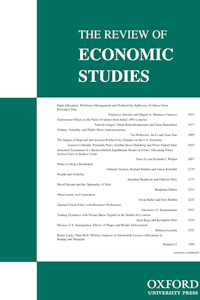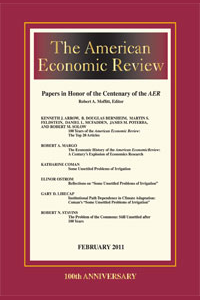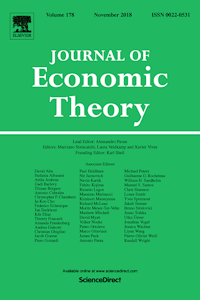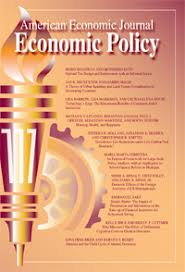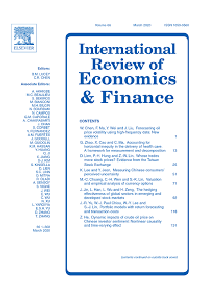
Jain, S. and Majumdar, S.
State Capacity, Redistributive Compensation and the Political Economy of Economic Policy Reform
International Review of Economics & Finance
Vol. 42 pp. 462-473 (2020)
Abstract: If governments can compensate “losers” from large-scale economic reform, such as trade liberalization, by redistributing some of the “winners'” gains, then any potentially Pareto-improving reform should be implemented. However, in many economies, the state's capacity to identify and tax winners is limited. How do such limitations impact the adoption of reforms? We show that for reforms where the distribution of winners and losers is exogenously given, higher state capacity unambiguously helps the adoption of Pareto-improving reforms. However, for reforms which require individual investment decisions by potential winners, better state capacity may not always translate into higher political support for reform.
Keywords: Political Economy, Redistribution, Compensation, State Capacity
JEL Codes: D72, F15, O10, H26, P11, P26, P16
Publisher's Link: https://doi.org/10.1016/j.iref.2015.10.025 ![]()
Keynes Fund Project(s):
The Politics of Economic Reform: Redistributive Promises, Transfers to Special Interests, and the Dynamics of Public Support for Economic Policy Reform (JHLI)

